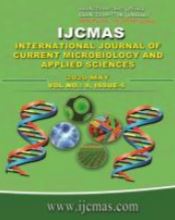


 National Academy of Agricultural Sciences (NAAS)
National Academy of Agricultural Sciences (NAAS)

|
PRINT ISSN : 2319-7692
Online ISSN : 2319-7706 Issues : 12 per year Publisher : Excellent Publishers Email : editorijcmas@gmail.com / submit@ijcmas.com Editor-in-chief: Dr.M.Prakash Index Copernicus ICV 2018: 95.39 NAAS RATING 2020: 5.38 |
The present study was aimed at understanding the socio-economic conditions and adoption of sheep management practices in Karauli district of Rajasthan, India as it serves as a benchmark for evolving meaningful extension strategies and other policy interventions. The scenario in Karauli district revealed that sheep production is in the hands of traditional farmers; rearing under the extensive system of management. Most of the farmers had a poor socio-economic background with illiteracy. Majority is rearing a hairy coated dual purpose breed with small flock sizes ranging from 25 to 50 heads. Non adoption of ram rotation, periodic culling of unproductive ewes, flushing, supplementary feeding of pregnant and lactating ewes and weaning indicated the very low level of adoption of management practices. Immunization for endemic diseases is followed at the behest of Animal Husbandry department. Health care measures are followed to the moderate extent only. Because of significant influence of the stockists, the farmers are depending on them for selection of suitable deworming agents rather than a veterinarian leading to exploitation.
 |
 |
 |
 |
 |